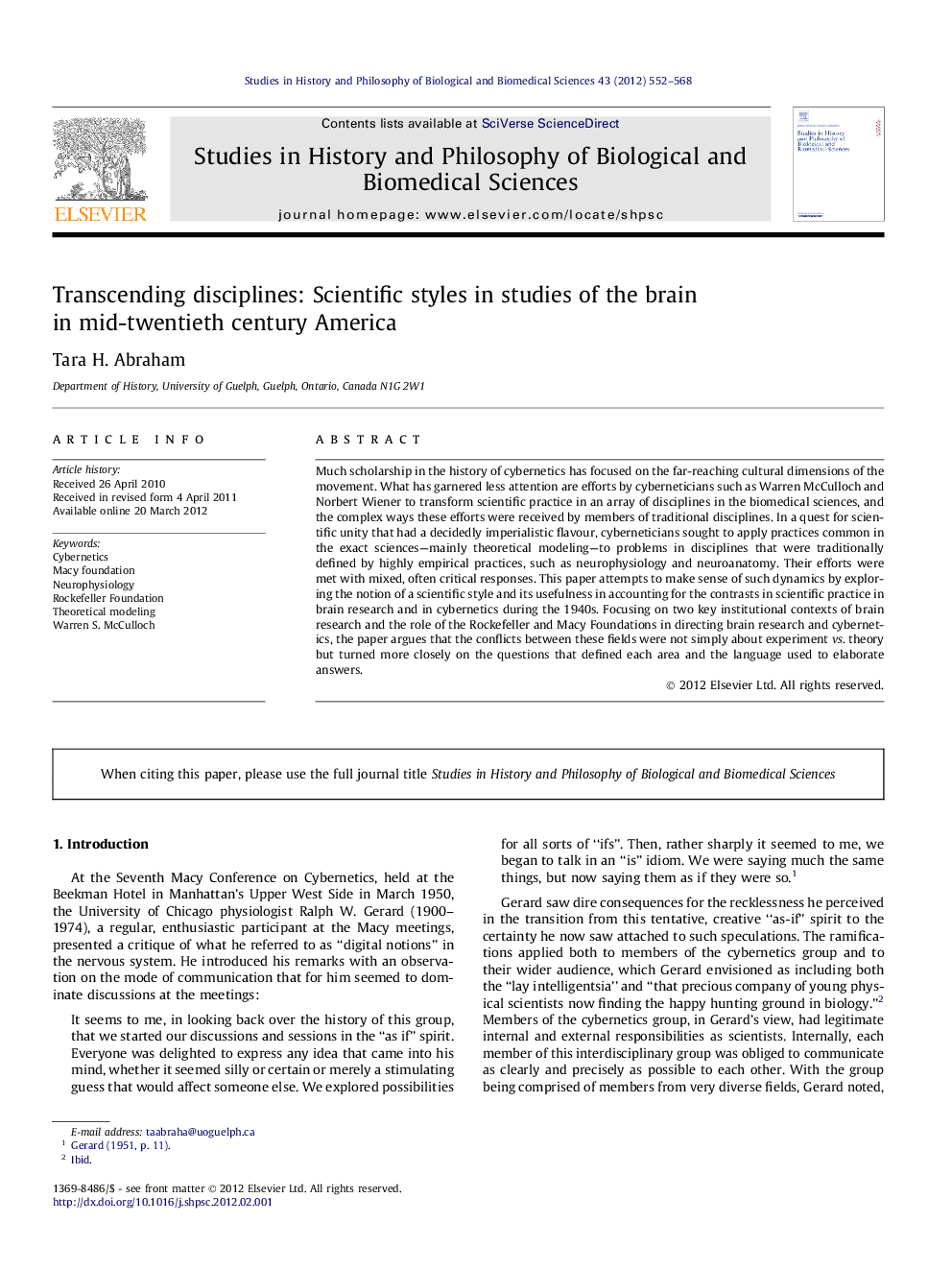| Article ID | Journal | Published Year | Pages | File Type |
|---|---|---|---|---|
| 1161850 | Studies in History and Philosophy of Science Part C: Studies in History and Philosophy of Biological and Biomedical Sciences | 2012 | 17 Pages |
Abstract
Much scholarship in the history of cybernetics has focused on the far-reaching cultural dimensions of the movement. What has garnered less attention are efforts by cyberneticians such as Warren McCulloch and Norbert Wiener to transform scientific practice in an array of disciplines in the biomedical sciences, and the complex ways these efforts were received by members of traditional disciplines. In a quest for scientific unity that had a decidedly imperialistic flavour, cyberneticians sought to apply practices common in the exact sciences-mainly theoretical modeling-to problems in disciplines that were traditionally defined by highly empirical practices, such as neurophysiology and neuroanatomy. Their efforts were met with mixed, often critical responses. This paper attempts to make sense of such dynamics by exploring the notion of a scientific style and its usefulness in accounting for the contrasts in scientific practice in brain research and in cybernetics during the 1940s. Focusing on two key institutional contexts of brain research and the role of the Rockefeller and Macy Foundations in directing brain research and cybernetics, the paper argues that the conflicts between these fields were not simply about experiment vs. theory but turned more closely on the questions that defined each area and the language used to elaborate answers.
Related Topics
Life Sciences
Agricultural and Biological Sciences
Agricultural and Biological Sciences (General)
Authors
Tara H. Abraham,
